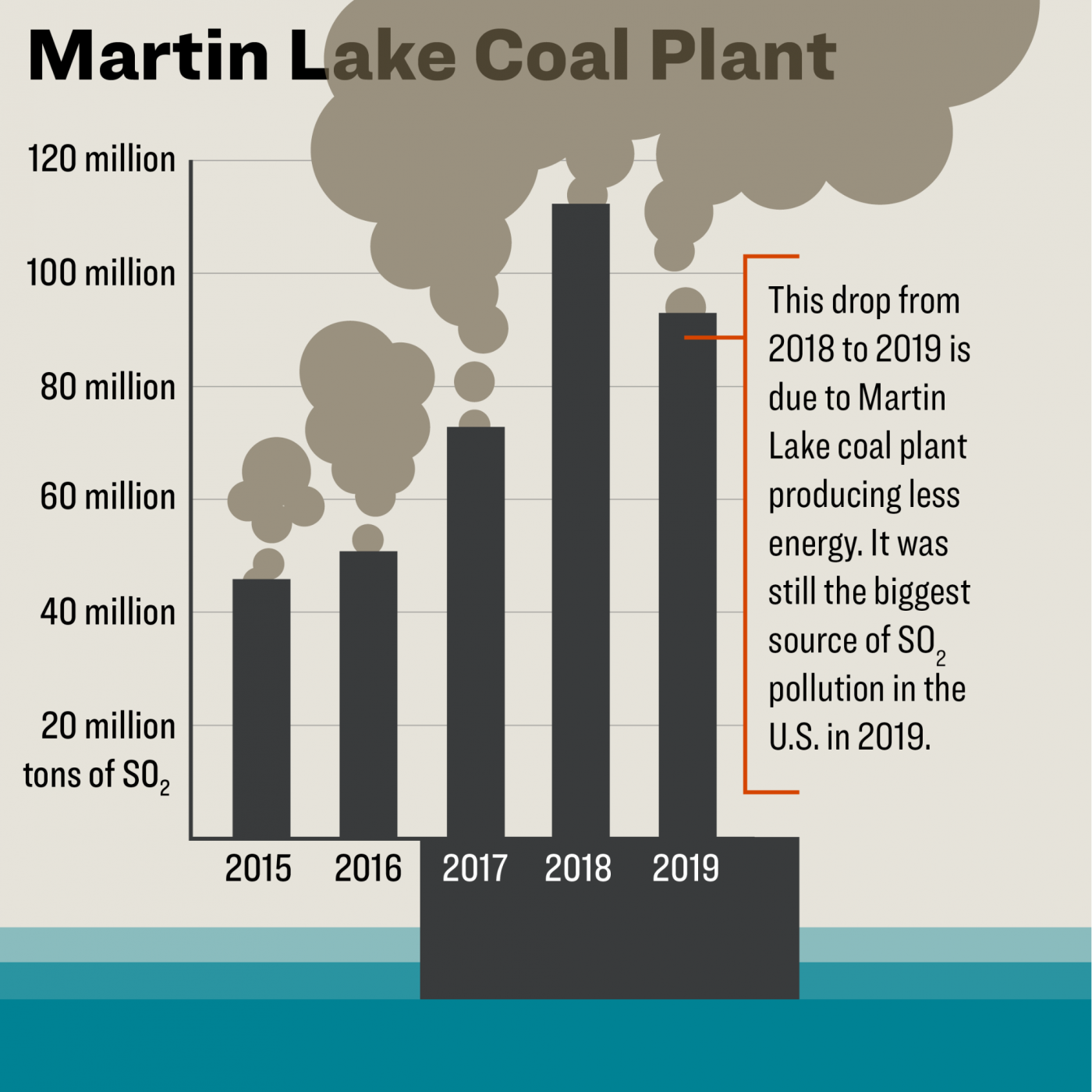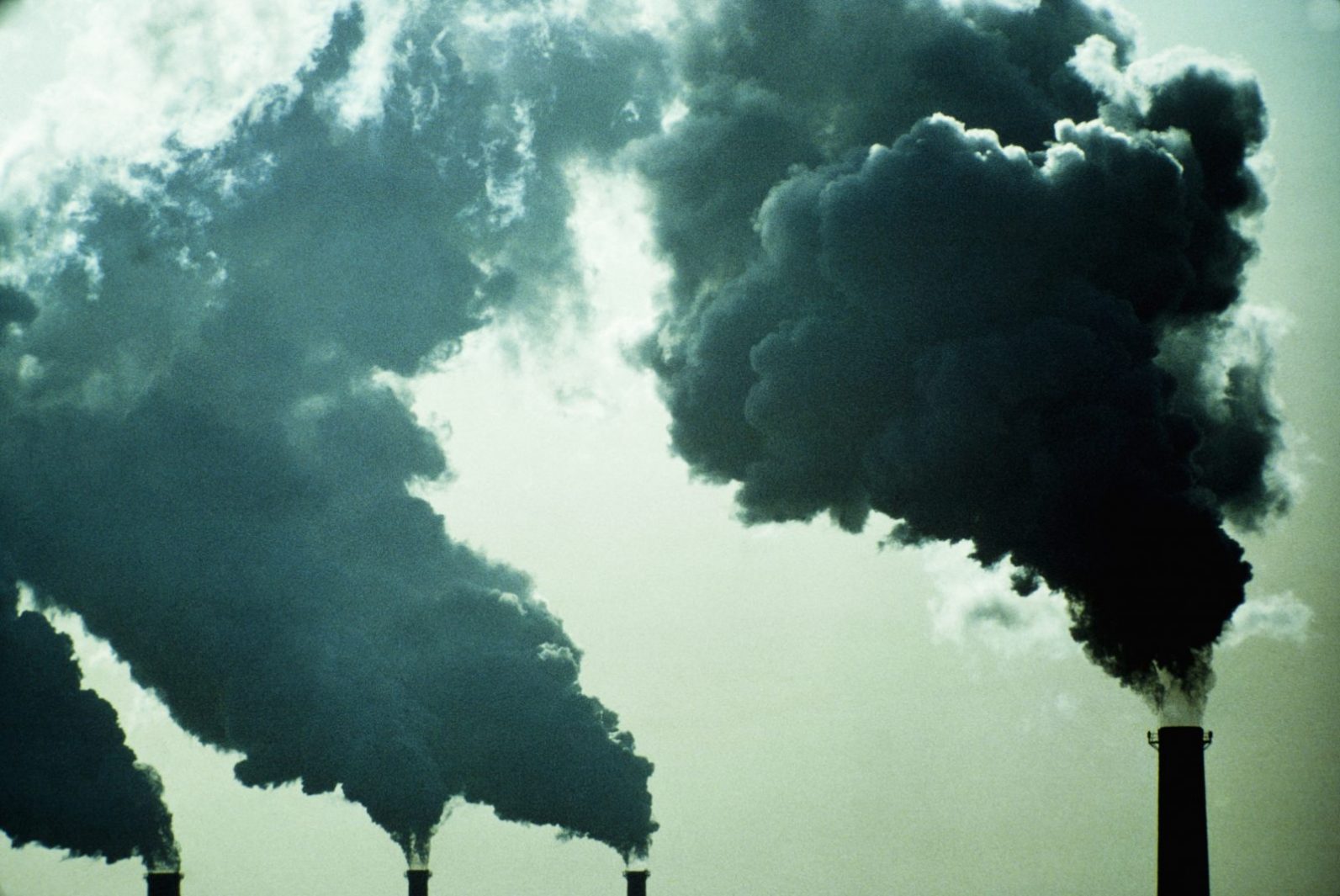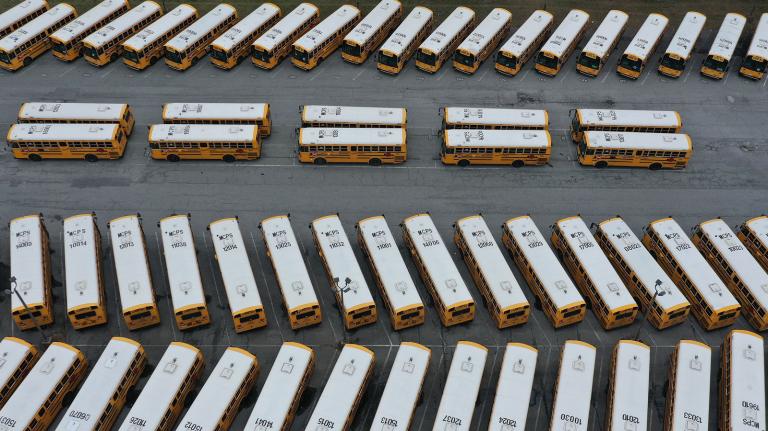Mary Anne Hitt will join the staff of Energy Innovation in May after more than a decade at the Sierra Club; she is also a public voices fellow of the OpEd Project and the Yale Program on Climate Change Communication. Rev Lennox Yearwood Jr. is the president and founder of Hip Hop Caucus, a minister, community activist, and U.S. Air Force veteran.
Drive two hours east of Dallas, or about an hour west from Shreveport, Louisiana, and you’ll find yourself on the doorstep of one of the biggest polluters in America. The Martin Lake coal plant, owned by Vistra, ranks No. 1 for toxic mercury emissions and No. 3 for deadly sulfur dioxide pollution among all U.S. power plants. Year after year, it continues to pollute while also pumping millions of tons of carbon dioxide into the atmosphere, contributing to the climate crisis.
The plant was built in the late 1970s and chugs along four decades later without scrubbers, a baghouse, or selective catalytic reduction technology — modern technologies that mitigate pollution — and continues to violate EPA public health standards. Mercury from smokestacks rains down and into waterways and can contaminate fish and wildlife. Most concerning, it can cause birth defects when ingested by pregnant women, which can leave children with lifelong developmental delays and cognitive challenges. Sulfur dioxide is notorious for triggering wheezing and difficulty breathing, especially in children with asthma.
Martin Lake is one of dozens of coal plants running without essential pollution control technology, representing 80 percent of the nation’s remaining 191 coal plants. Most have no intention of winding down or cleaning up: A recent report by the Sierra Club and climate policy expert (and 2020 Grist 50 honoree) Leah Stokes found that utilities plan to hang onto three-quarters of their coal plants beyond the end of this decade, jeopardizing our health, communities, and climate with every passing year.
That’s why the Biden administration must take three key actions now: Restore and enforce pollution standards for the nation’s remaining coal plants; accelerate our shift to 100 percent clean energy; and support a robust economic transition for coal communities.
We are climate justice leaders who have had a front row seat to the heroic efforts by grassroots advocates from more than 300 organizations — including the Sierra Club’s Beyond Coal campaign, which Mary Anne led for a decade — to move our country beyond coal toward clean, reliable renewable energy. In the last 12 years, these organizations successfully led campaigns to retire 339 coal plants. But the remaining plants continue to threaten the health and lives of people across the nation, as well as our climate. (Rev has a particular interest in Martin Lake: He grew up in its shadow in Shreveport). Market forces alone aren’t going to bring affected communities clean air and water.

On the outskirts of St. Louis, Ameren’s Labadie coal plant is the largest in the U.S. operating without a scrubber, the essential pollution control for sulfur dioxide. The plant affects the entire population of the city, which is 45 percent Black; Black children visit emergency rooms for asthma roughly 10 times more frequently each year than white children, owing to decades of systemic racism that have left Black families more exposed to pollution and without equal access to housing and healthcare. The sulfur dioxide from Labadie is a major trigger of health emergencies.
Even communities hundreds of miles downwind — that’s how far air pollution can travel — needlessly face a higher risk of asthma, heart attacks, and strokes, all of which increase the risk of severe complications from COVID, further exacerbating racial health disparities.
Beyond being more polluting, these coal plants are more expensive than renewable energy, and we have the technology needed to keep the lights on without them. As the recent Texas blackouts made clear, aging fossil fuel plants are no longer sufficient to keep the power flowing to homes and communities as climate change delivers increasingly extreme weather to our doorsteps.
Coal plant owners spend millions on litigation and lobbying against clean air and water standards. Meanwhile, the owners and operators of the coal mines that feed these plants are trying to abandon their promises to workers of pensions and healthcare as their companies slide further into financial trouble and sometimes bankruptcy. These polluters must be held accountable to the communities they’ve damaged and the workers they’re trying to leave behind.
First, the Biden administration must restore and strengthen the clean air and water standards for coal plants that the Trump administration rolled back. It needs to reinstate and enforce gutted EPA safeguards like standards for mercury pollution, sulfur dioxide emissions, smog, coal ash disposal, and toxic water discharges.
Second, the administration should support an economic transition with federal grants and loans for coal communities in states like West Virginia so that workers can pursue new economic opportunities without having to move from their homes. Biden should also push Congress to pass bills like the RECLAIM Act, which commits $1 billion to put people to work cleaning up and retiring dangerous and polluting abandoned coal mines.
Finally, the administration needs to accelerate our transition to clean energy and make sure places historically burdened by pollution fully benefit by targeting investments to those communities and ensuring that residents participate in decision making. We’re already getting more power from renewable energy than from coal — we passed that milestone in 2020 — and renewables are now cheaper than coal across the country. A centerpiece of Biden’s climate plan is a 100 percent clean energy standard, and it has massive public support.
We’re already well on our way: One-third of Americans live in a city or state that has made a commitment to 100 percent clean energy, including Virginia, New Mexico, and Washington, and some places are well on their way to achieving it.
As we work together to tackle the intertwined crises of COVID, climate change, racial injustice, and our fragile economy, there’s simply no more room for these expensive coal plants in our energy mix. It’s time to move on.
The views expressed here reflect those of the author. Fix is committed to publishing a diversity of voices. Got a bold idea or fresh news analysis? Submit your op-ed draft, along with a note about who you are, to fix@grist.org.



